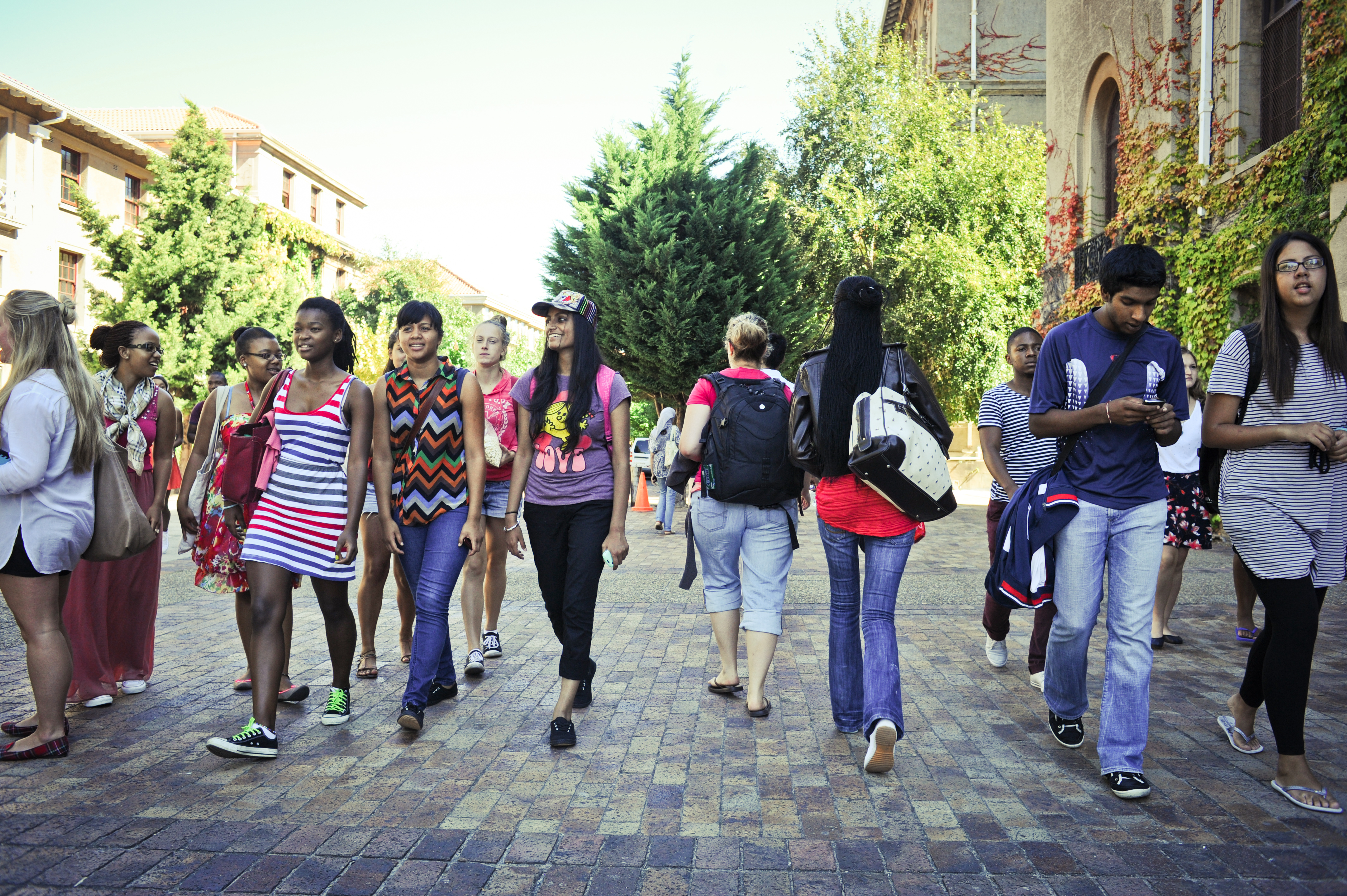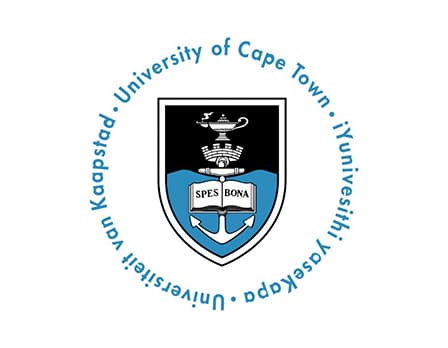“Leaders become great, not because of their power, but because of their ability to empower others.” – John Maxwell
The University of Cape Town (UCT) is often cited as the best university in Africa; however, more important to the university is that it should be the best for Africa. One of the flagship programs that helps UCT to achieve this goal is The Mastercard Foundation Scholars Program, which aims to make a difference to economically disadvantaged students, and to give them the tools to make a difference to the continent.
Nicola Jeranyama from Zimbabwe is a student of UCT’s Actuarial Science program and one of the university’s MasterCard Foundation Scholars. One day, she dreams of opening a school specifically designed to help orphaned and abandoned children. “I want to build a school that provides free education to children from children’s homes,” she explains. “I have seen a lot of potential in these children, through my experiences with them in Zimbabwe as I often volunteered to teach them.”
Seeking to cultivate the next generation of influential African leaders like Jeranyama, The MasterCard Foundation Scholars Program drives social and economic change across the continent. Working hand in hand to provide this once-in-a-lifetime opportunity, The MasterCard Foundation, in partnership with UCT, has committed more than $23 million towards 338 scholarships across a 10-year period, enabling sub-Saharan students to pursue undergraduate, honours and master’s programs at this world-class institution.

Photographed with DVC Prof Danie Visser and IAPO Director Prof Evance Kalula at their welcome reception are the 2016 intake of MasterCard Foundation Scholars at UCT. Image courtesy of the University of Cape Town
The Program at UCT is part of the prestigious, global MasterCard Foundation Scholars Program; a more than $825-million education initiative that provides academically talented yet economically disadvantaged young people from developing countries – particularly from Africa – with access to quality and relevant secondary and university education. The scholarships ensure a premium educational package that produces graduates whose qualifications are internationally recognised and locally applicable, and whose transition into the workforce and society is underpinned by values of engaged citizenship and social justice. It further encourages students to become leaders of positive change, not just in their communities, but the continent at large.
Professor Evance Kalula, director of the International Academic Programs Office at UCT, felt it important to stress the difference between this program and others of its kind, reminding last year’s proud recipients of a MasterCard Foundation scholarship that the program is about community engagement and giving back to the wider world. “You are expected to give back, to make a difference,” he explained, adding that the program hopes to produce competent, considerate and well-rounded individuals, while upholding UCT’s firm value for enacting social change.
To date, the program has enrolled 40 talented scholars, promising a return on investment (ROI) that stretches far beyond the benefits of an elite and globally recognised degree: it also presents a valuable tool that helps turn ambition to reality, while receiving support from UCT’s expert faculty every step of the way.
“I really wanted an opportunity to do postgrad studies and The MasterCard Foundation offered me more than that,” says Fadzai Muramba, a master’s student of development studies at UCT. “It offered to support my research, to provide leadership training and classes so I become more than just a good graduate student,” she explains.
“It’s given me the opportunity to meet Scholars from other African countries and engage with them on a personal level, and you rarely get that opportunity back home. Being in meetings and conversing with them, you get to understand what it’s like to live in Malawi or Kenya, for instance – a perspective you’d never get if you didn’t have that close relationship.”

Jeremiah Mutungi, image courtesy of the University of Cape Town
On graduating from the university last year, Jeremiah Mutungi, a fellow scholarship participant and former student of UCT’s master’s program in electrical engineering, is ready to advocate positive change within his home and surrounding communities, taking all he has learned and applying it in a powerful real-world setting. Despite a revolution seeping through the continent’s financial sector, Mutungi knows that the full potential of mobile technology in Africa is yet to be unleashed.
Mutungi whole-heartedly believes that the success of Africa’s banking sector can echo through other fields – especially agriculture, the backbone of many continental economies. “I believe it holds the key to transforming Africa,” he states, using every ounce of knowledge and experience he has to help shape a better world. It is the high-class training, support and education he received at UCT, he says, that will make this possible.
Established in 1829, the University of Cape Town (UCT) has forged a long and respected heritage of excellence among students, alumni and academics alike. Renowned for effecting social change and development, as well as its striking setting at the foot of Cape Town’s iconic Devil’s Peak, UCT is an esteemed higher education provider that inspires and innovates as much as it invigorates.
UCT is both modelled and inspirited by the city in which it resides, encompassing a vibrant, multicultural and cosmopolitan vibe. Set in a well-known cultural melting pot, UCT’s staff and student bodies come from more than 100 countries in Africa and worldwide, allowing the institution to forge strong links, partnerships and exchange agreements with continental and global universities, while stimulating the academic, social and cultural diversity of a campus that’s both modern and dynamic.
“This heritage characterises the experience of studying at UCT, where our students are introduced to a life of leadership and service through social engagement,” says Dr Max Price, Vice-Chancellor of UCT. “They also have the opportunity to hone their leadership skills by participating in over 100 clubs and societies on campus, as well as in student governance,” he explains.

From left: Christina Nyandoro, UCT VIce-Chancellor Dr Max Price and Jeremiah Mutungi at 2017 graduation. Image courtesy of the University of Cape Town
“As a university, we are committed to producing graduates who are not only well-educated, but also mindful of the responsibilities of democratic citizenship.”
With its duty to develop the educated and thoughtful leaders of tomorrow, UCT makes the most profound contribution to its country, its continent, and of course the world. This, paired with its reputation for providing an outstanding learning experience, means that UCT’s qualified graduates are among the world’s most distinguished. As Fadzai Muramba concludes: “UCT is the best university in Africa and I wanted an opportunity to study here and be among the best.”
Read more about The MasterCard Foundation Scholars Program at the University of Cape Town on mcfsp.uct.ac.za, and follow UCT on Facebook, Twitter, YouTube and LinkedIn
Liked this? Then you’ll love these…
The wanderlust list: Leading universities in exciting locations
University of Cape Town: Perfectly blending affordability with global excellence











